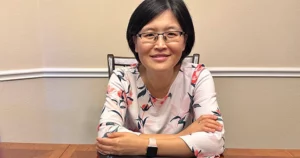Young people aged 15-24 have experienced the greatest percentage increase in opioid overdose deaths in recent years. Yet the same age group is often resistant to the influence of public health campaigns.
The effectiveness of ad campaigns targeting young adults depends on a wide range of factors, said Xiaoxia Cao, an associate professor of communication who conducts health communication research with an emphasis on anti-prescription opioid campaigns. The audience’s experience with prescription opioids and the way that information about the dangers of prescription opioids is delivered both matter for the campaigns’ success, she said.
In her last two publications, Cao zeroed in on the emotional and psychological factors that affect the effectiveness of anti-drug messages. She discussed some of her findings with the UWM Marketing & Communications team.
Read the full story on UWM Report.
